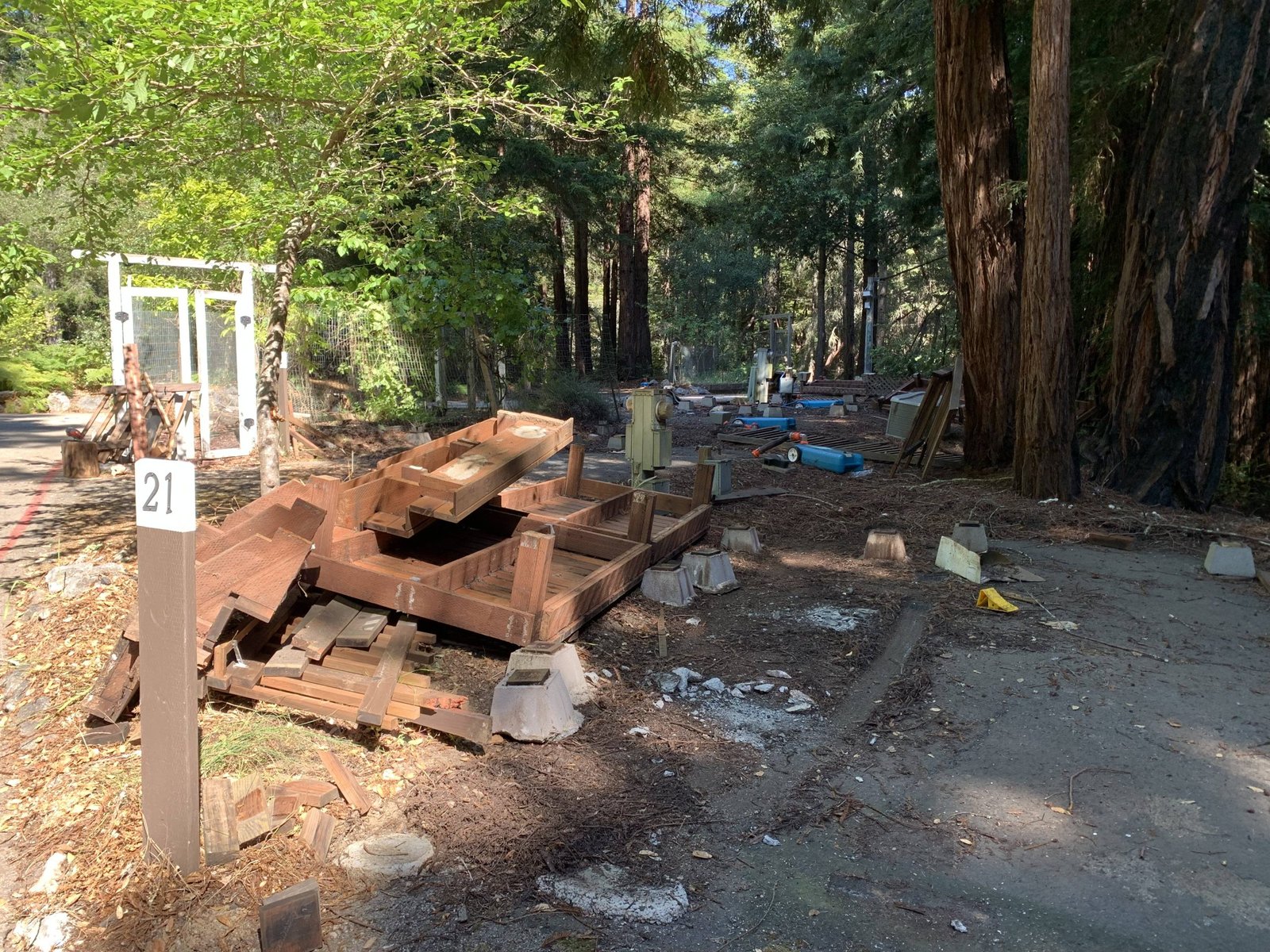In short:
When UC Santa Cruz officials announced the closure of an on-campus student trailer park on July 10, they cited a safety assessment as the reason. The Lookout recently obtained the assessment report through a records request, which includes a proposal to repurpose the area as a meditation garden and commuter lounge.
As part of their decision this year to close a 40-year-old on-campus trailer park that was housing 41 students, UC Santa Cruz officials cited a safety and sustainability assessment report that found the trailers posed fire hazards, mold concerns, weak security systems and long-term habitability issues.
The June 25 report, obtained Friday by Lookout after filing a formal public records request, includes proposals for alternative uses for the land and the trailer park’s restrooms, community areas and kitchen. Officials are proposing to develop a meditation garden where the student trailers were located and a commuter lounge where the park’s kitchen, community areas and restrooms are located. The commuter lounge would provide a place for students who live off-campus to prepare meals, study and relax.
“In consultation with the Campus Ombudsman and CAPS, it is possible that this space could be repurposed for the development of a meditation garden area,” the report states, referring to the Office of Conflict Resolution and Counseling Services. “The facility, which currently houses a community lounge, kitchen and laundry facilities, as well as restrooms, could be converted into a commuter lounge space and conveniently located near the North Remote parking lot.”
Natalie Twileger, a student who was displaced from the camper park, is unhappy that a meditation garden has been built in place of much-needed affordable housing.
“What really caught my attention (in the report) was the alternative plan – to have a garden and a commuter lounge, even though students don’t need another garden,” she said. “The camper park already has two gardens. We don’t need a garden. We need a place to live and a university that cares about us.”
Laura Arroyo, vice chancellor for academic, housing and instructional services, told The Lookout on July 10 that an assessment found the trailers were no longer a safe and sustainable option for student housing, so the university announced the park’s official closure in a news release that day. That morning, the trailers were towed out of the park and recycled.
“The camper park facility poses significant health and safety concerns and risks to resident students and is therefore recommended to be permanently closed at the end of the 2023-24 school year,” the report states. “Recreational travel trailers are not designed or intended for long-term occupancy and the trailers at UCSC camper parks demonstrate the challenges associated with long-term occupancy.”
Before it closed, the camper park was located west of the Baskin School of Engineering on Heller Drive. The camper park was established in 1984 in response to a long-standing request from students that the university provide an affordable place for them to live in trailers.

Tuillegah said she and other students still face that challenge: They used to pay $750 a month to live in a trailer at a camper park. Now they pay $1,100 a month for a room in a six-person house on the west side.
“I thought about getting a third job, but I realized it just wasn’t possible with my lifestyle,” she says. “I would have to dip into my savings to pay the rent.”
Tuillegah said she and other students are no longer pushing for the park to remain, after the university announced it would remove the trailers and officially close the camper park earlier this month. She likes the idea of a commuter lounge because it gives students a place to relax and prepare meals, but she would like to see it go further so that students who live off-campus not only have a place to relax, but also receive assistance finding affordable housing.
“I want this space to be not only a lounge for commuter guests, but a resource hub for students who are housing insecure or who really need resources that the school doesn’t provide,” she said. “Even though it’s closed now, we have to look at this as an opportunity for new growth, an opportunity to build independent housing, housing that will last a lot longer than a camper park.”

